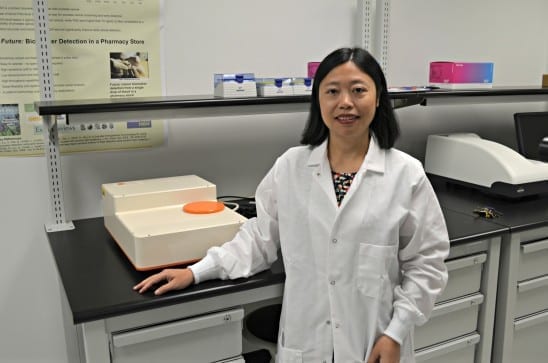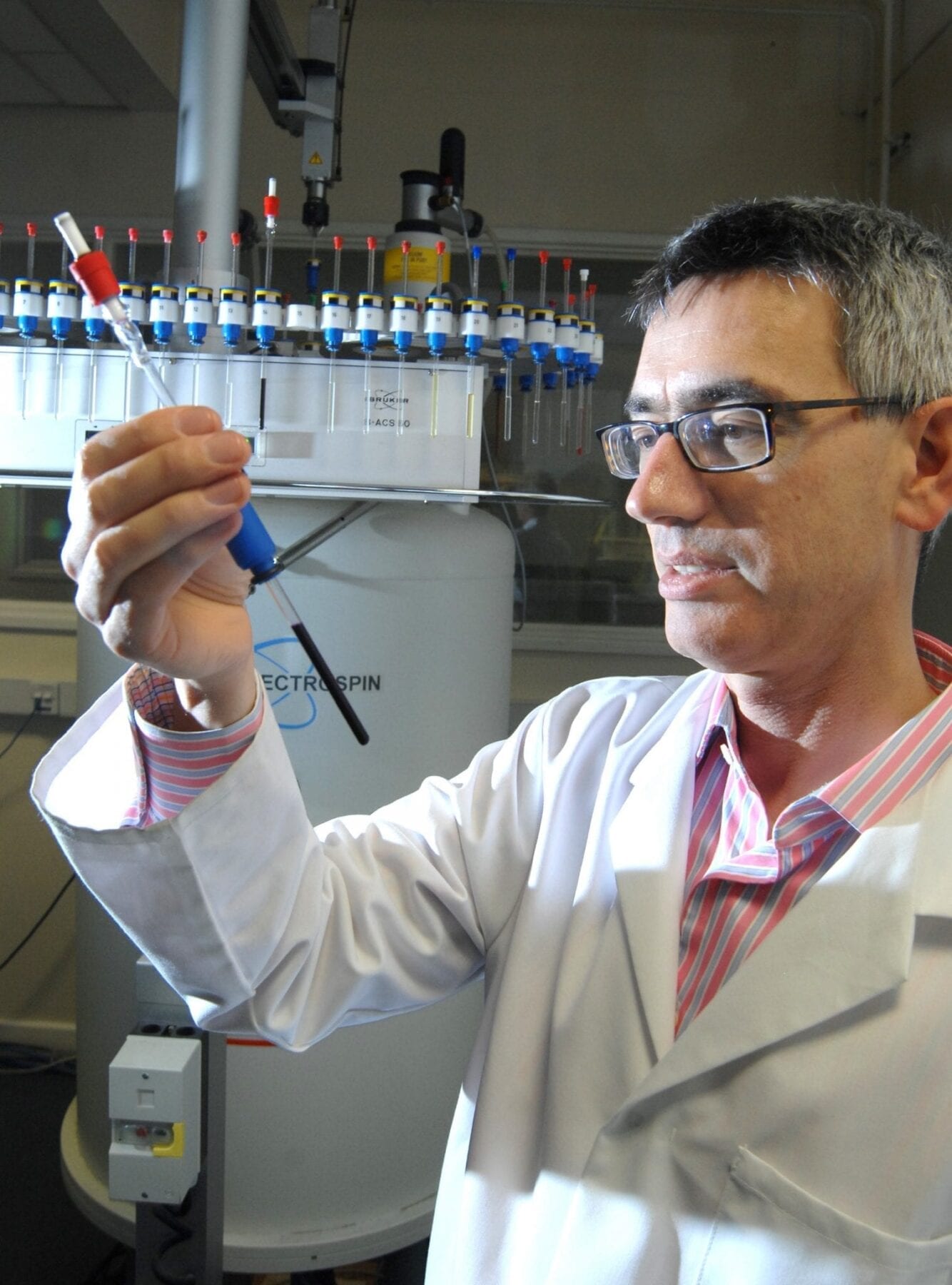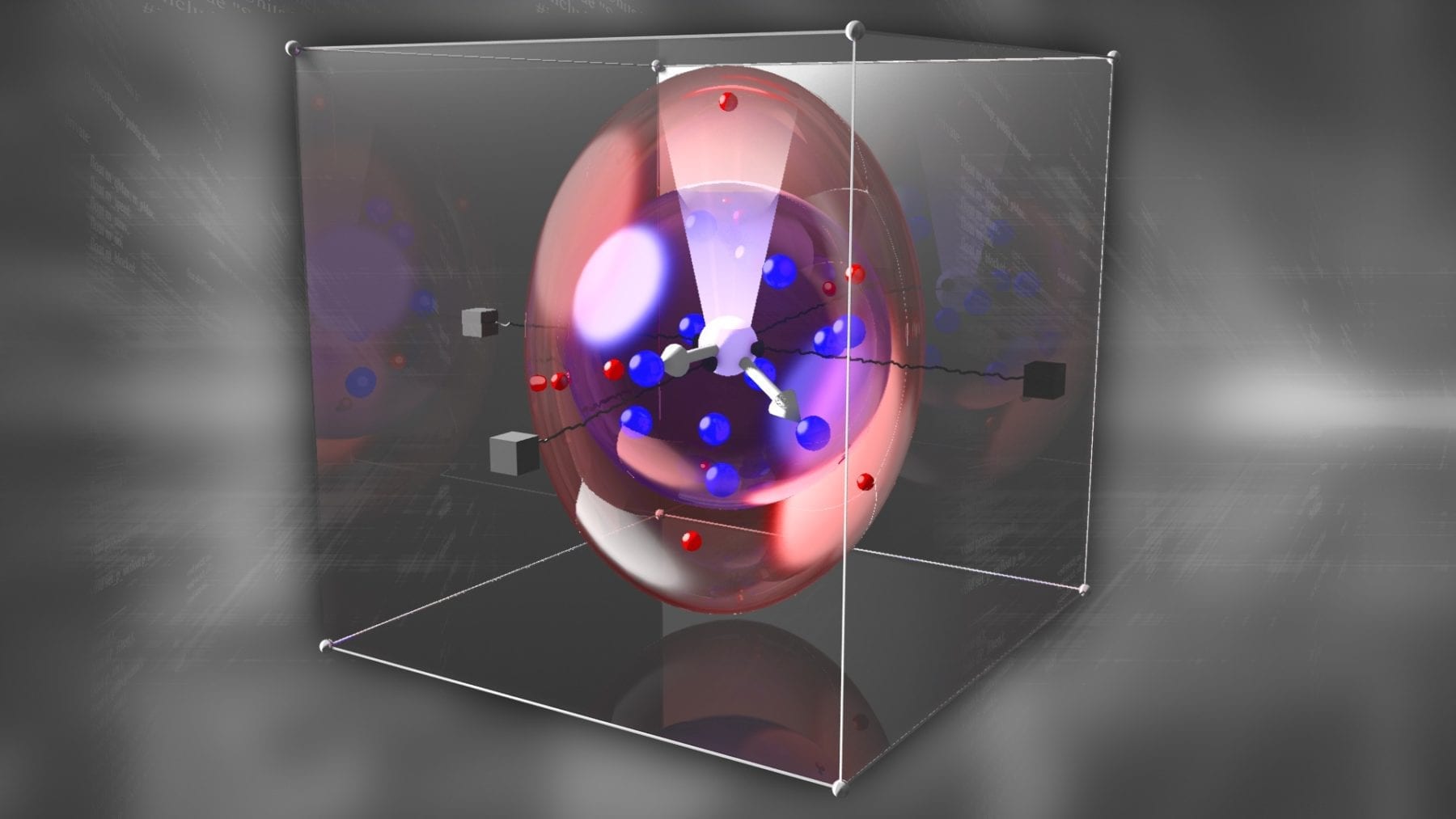
A test that costs less than a $1 and yields results in minutes has been shown in newly published studies to be more sensitive and more exact than the current standard test for early-stage prostate cancer.
The simple test developed by University of Central Florida scientist Qun “Treen” Huo holds the promise of earlier detection of one of the deadliest cancers among men. It would also reduce the number of unnecessary and invasive biopsies stemming from the less precise PSA test that’s now used.
“It’s fantastic,” said Dr. Inoel Rivera, a urologic oncologist at Florida Hospital Cancer Institute, which collaborated with Huo on the recent pilot studies. “It’s a simple test. It’s much better than the test we have right now, which is the PSA, and it’s cost-effective.”
When a cancerous tumor begins to develop, the body mobilizes to produce antibodies. Huo’s test detects that immune response using gold nanoparticles about 10,000 times smaller than a freckle.
When a few drops of blood serum from a finger prick are mixed with the gold nanoparticles, certain cancer biomarkers cling to the surface of the tiny particles, increasing their size and causing them to clump together.
Among researchers, gold nanoparticles are known for their extraordinary efficiency at absorbing and scattering light. Huo and her team at UCF’s NanoScience Technology Center developed a technique known as nanoparticle-enabled dynamic light scattering assay (NanoDLSay) to measure the size of the particles by analyzing the light they throw off. That size reveals whether a patient has prostate cancer and how advanced it may be.
And although it uses gold, the test is cheap. A small bottle of nanoparticles suspended in water costs about $250, and contains enough for about 2,500 tests.
“What’s different and unique about our technique is it’s a very simple process, and the material required for the test is less than $1,” Huo said. “And because it’s low-cost, we’re hoping most people can have this test in their doctor’s office. If we can catch this cancer in its early stages, the impact is going to be big.”
Read more: $1 Test Developed at UCF Outperforms PSA Screening for Prostate Cancer
The Latest on: Prostate Cancer
[google_news title=”” keyword=”Prostate Cancer” num_posts=”10″ blurb_length=”0″ show_thumb=”left”]
via Google News
The Latest on: Prostate Cancer
- Unbelievable, Anne! Jeff Stelling receives MBE from the Princess Royal after raising £1.7m for fight against prostate cancer with 34 marathon walkson May 1, 2024 at 7:27 am
The 69-year-old, who was the frontman of the hugely popular Sky Sports Gillette Soccer Saturday show from 1994 until 2023, picked up the honour at Buckingham Palace today.
- The nine things every man should know about prostate canceron May 1, 2024 at 1:23 am
Opening up about their below-the-belt health is not a conversation every man wants to have with his doctor, let alone his nearest and dearest – but the fact remains that every 45 minutes one man dies from prostate cancer in the UK.
via Bing News










